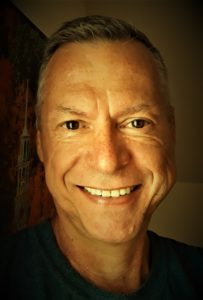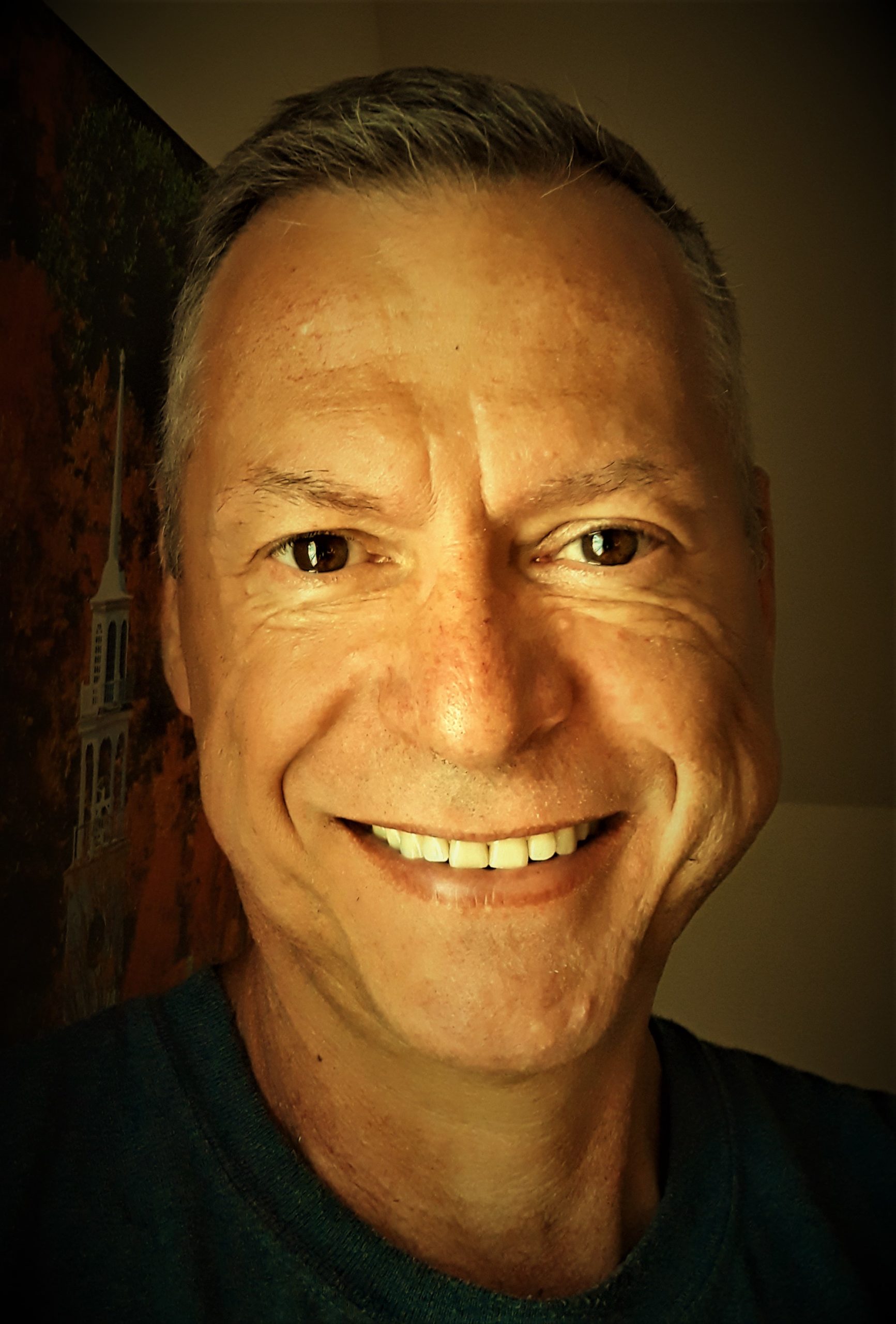From The Farm To The Front Page
by Harold R. “Scottie” Scott
 Growing up on a working farm in rural, middle Tennessee, I never thought I would be affected by the AIDS epidemic. This is my story.
Growing up on a working farm in rural, middle Tennessee, I never thought I would be affected by the AIDS epidemic. This is my story.
In late 1989, I met and dated someone for about three months. It was from this brief “fling” that my life would be forever changed as, being rather naive, I allowed myself to become infected with HIV. After discussing HIV/AIDS risks, and before participating in unprotected sex, the person I was dating told me they were not infected, so I believed there was nothing to worry about. That would change.
Fast forward to 1991. It was in the spring that I began to notice a rash appearing on my body. Small blood blisters would appear, last a few days and disappear, only to repeat days later. This continued throughout the summer. I began to investigate my weird rash, finding a medical book to see if I could determine the cause. After some time, I came across a condition called idiopathic thrombocytopenic purpura (ITP), a bleeding disorder in which the immune system destroys blood platelets, which could be caused by a number of things, one of which was HIV.
I did not think it was HIV because I had previously tested negative. I felt it was likely leukemia, another possible cause. After several months of dealing with this, I finally decided to see a doctor in a nearby city. Upon examining me, he immediately said he felt it was likely leukemia and referred me to an oncologist in Nashville, Tennessee, some 85 miles from my little hometown with a population of less than 1,000 people. It was there that, after discussing my sexual history and labs being drawn, it was determined that I did in fact have ITP and my platelet count was off the chart — in a negative manner. I agreed to an HIV test just to rule it out. I did not feel I could be infected with HIV; however, my thoughts raced back to 1989, with a nagging question of whether it could possibly be happening to me.
On October 24, 1991 at about 11:00 a.m. while at my job, my supervisor told me I had a phone call from my doctor in Nashville and that I could take the call in his office. I answered the phone, and the doctor began to speak. Right away, he told me, “Your HIV test is positive; you have five, maybe seven years to live. I suggest you find a doctor who will treat you.” I was so shocked, not only to get a positive result, but also by the way I had been told. The room and environment around me seemed to start spinning in slow motion as I tried to comprehend what I had just heard.
After this news, I did a lot of crying, feeling so alone and isolated. I had not known anyone who was living with HIV. Obviously, I had or I would not have become infected, but I did not know what to do or where to turn. All I could think of was, “How do I do this?” and “How do I keep my secret?” For I certainly did not want anyone in my small hometown to ever find out. My solution, I thought, was to end my life. That way no one would ever know my secret. Most of what I knew about HIV/AIDS was what I had seen on TV, and that, for the most part, was of sickness and dying. I was naive when it came to HIV in that I, like so many others, felt that it was something happening in big cities elsewhere around the country. However, in truth, it had already made its way to rural America.
As time passed, I became involved in a support group that met in a nearby town, and it was there that I began my journey back to life. It was there that I met many others who, like me, were from small, rural areas, learning to cope with life after an HIV diagnosis. It was also there I decided that if I were going to learn to live with HIV, it would be on my terms. I began to see the light at the end of a very dark tunnel. For two years, I kept my secret except for a few close friends, and I told no one at my place of employment until July 1993, when, after dealing with the stress of hiding my secret, I decided I would leave my job. After all, I thought I had only a year to live, maybe three, if the prognosis given some two years prior came to be.
After leaving my job, I threw myself into the support group even more, and there I became close friends with a man who had been living with AIDS for some time, and it had taken its toll. So much so that in the summer of 1994 he passed away from the complications of AIDS. It was his friendship, his illness and his eventual passing that led me to do something I never imagined I would ever do. No one living in the area in which I lived had ever publicly acknowledged they were living with HIV. It was something no one dared even to discuss. However, after much thought and discussion with those closest to me, I made the decision to become the local, rural face of HIV/AIDS. On December 1, 1994, during a World AIDS Day program, I announced that I was infected with HIV and had been living with it for about five years. I waited for the world to come crashing down around me, for I had encountered many who saw those living with HIV as dirty, as people deserving of all that came with the effects of AIDS.
As news of my announcement made its rounds, I spoke before an audience of maybe 100 people, I did radio interviews and a local TV station picked up the story of a “local man with AIDS,” as the front page of the newspaper read.
I have spent the past twenty five plus years volunteering my time as a community volunteer/educator, using my personal story and sharing what my journey of life has been like as the “poster child” for HIV/AIDS. I have long outlived my initial prognosis. I am one of two survivors of that original support group from 1991. I have made a difference in this world by sharing myself with those who want to hear my story. I never thought I would still be around so many years later as a long-term survivor of 30 years. It has been and continues to be quite the journey — not only a journey with a life-changing condition, but also one in which I have learned about forgiveness and also of love, for myself and others. Now, nearing sixty, in many ways HIV has been a blessing, and it has certainly been a learning experience.

